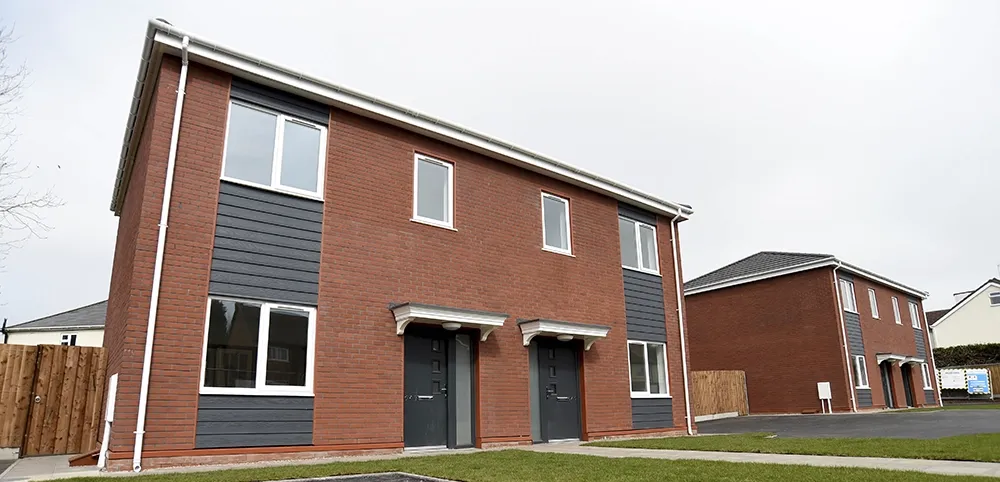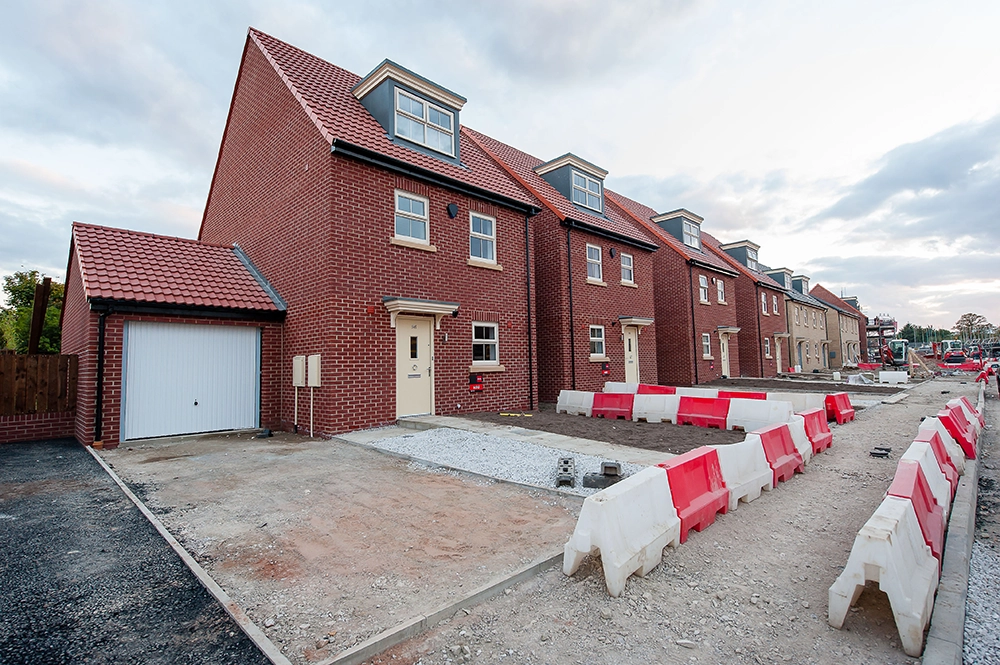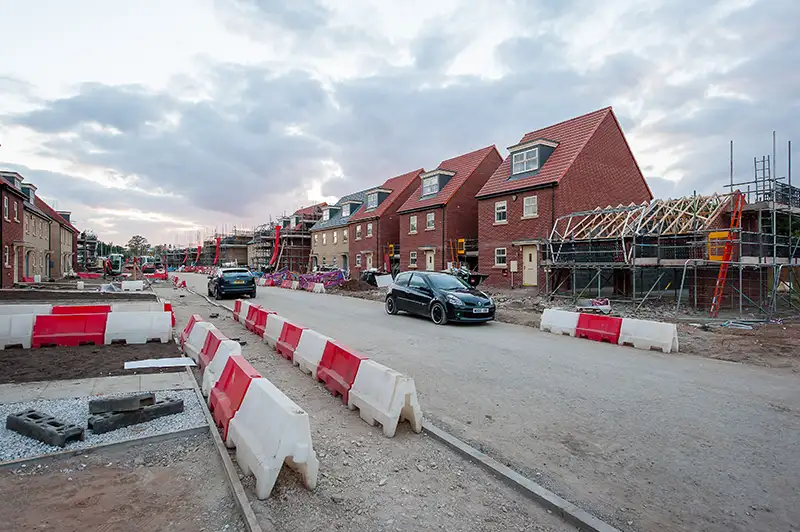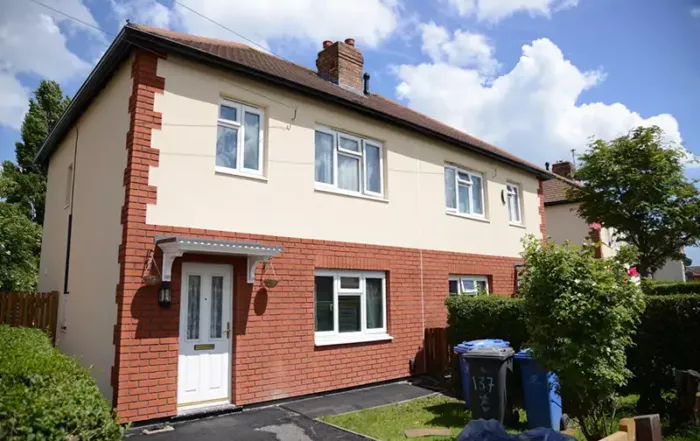Consultation Outcome – Rents Policy and Convergence
MHCLG has published the consultation outcome relating to future rent policy and convergence. This confirms the earlier Spending Review announcement of a new 10 year rental settlement allowing annual rent increases up to CPI +1% each year from 1 April 2026 to 31 March 2036, based on CPI from the previous September.
The decision on rent convergence confirms that Registered Providers may increase the rent on Social Rent homes by up to an additional £1 per week above the CPI+1% limit from April 2027, and £2 per week from April 2028, until formula rent is reached.
Following these announcements, the Regulator of Social Housing (RSH) published the Rent Standard 2026 and associated guidance.
MHCLG publishes consultation outcomes on Decent Homes and MEES
Decent Homes
The policy statement confirms that the new DHS will apply to both social rented and private rented sectors from 2035. This extended implementation timeframe is intended to allow landlords sufficient time to plan for and manage implementation effectively. In addition, the government is keen to ensure social landlords have the resources to support both improvements to their existing stock and continued delivery of new supply.
The new DHS will focus on condition as the primary factor for compliance, rather than the age of a property/ component. See box for overview of the new DHS
The new DHS will also apply to supported housing and temporary accommodation; however, the government has recognised that there may be instances where it is not appropriate for landlords to meet certain elements of the DHS and further guidance on this will be available later this year. Additional guidance will also be published covering rented homes where the landlord is a leaseholder, as well as mixed‑tenure blocks containing both rented and owner‑occupied leasehold properties.
The new DHS will not include a mandatory requirement to provide floor coverings, although this was part of the consultation. Housing Minister Matthew Pennycook, in a parliamentary written statement, indicated that this decision reflects careful consideration of feedback received and the significant challenges that would be involved in implementing this as a mandatory requirement. However, the government recognises that many residents struggle to provide basic floor coverings and will look to identify cost-effective ways landlords can support tenants in need.
Other measures included as part of the consultation that have not been carried through to the new DHS include proposed enhanced home security measures and obligations to meet enhanced standards within the public realm (boundary walls, curtilage, pathways and steps, signage, external lighting, bin stores).
MEES (Minimum Energy Efficiency Standards)
The consultation response on MEES confirms the requirement for social rented properties to achieve EPC C or equivalent by 1 April 2030.
The ‘dual metric’ approach set out in the consultation requiring providers to meet EPC C in two metrics, is retained. However, in response to concerns about deliverability and affordability, the timescale for full implementation has been extended. Social landlords will only be required to meet one metric by the 2030 deadline; the second metric must be achieved by 2039.
In addition, the ‘Fabric First’ principle will no longer be mandatory, allowing landlords to select which metric (smart, heat, or fabric) is best suited to their stock and tenant needs allowing flexibility where other metrics may deliver greater benefits.
A new, time‑limited ‘Spend Exemption’ will apply from 1 April 2030, capping required energy‑efficiency investment at £10,000 for a 10‑year period. Also, homes that are already compliant with EPC C with a valid certificate issued before the new EPC format is introduced will be able to rely on this certificate until it expires.
CWAG Newsletter – February 2026
This edition focusses on recent government policy announcements with implications for the social housing sector.

Future Social Rent Policy and Social Rent Convergence
MHCLG has published a consultation outcome relating to consultations held last year on future rent policy and convergence. The consultation outcome confirms the earlier Spending Review announcement of a new 10 year rental settlement allowing annual rent increases up to CPI +1% each year from 1 April 2026 to 31 March 2036, based on CPI from the previous September.
The decision on rent convergence which was the subject of a separate consultation in July 2025 confirmed that Registered Providers may increase the rent on Social Rent homes by up to an additional £1 per week above the CPI+1% limit from April 2027, and £2 per week from April 2028, until formula rent is reached.
Following these announcements, the Regulator of Social Housing (RSH) published the Rent Standard 2026 and associated guidance reflecting the new social rent policy and convergence arrangements.
The New Decent Homes Standard
The Government has published a policy statement in response to its consultations on a new Decent Homes Standard (DHS).
The policy statement confirms that the new DHS will apply to both social rented and private rented sectors from 2035. This extended implementation timeframe is intended to allow landlords sufficient time to plan for and manage implementation effectively. In addition, the government is keen to ensure social landlords have the resources to support both improvements to their existing stock and continued delivery of new supply.
The new DHS will focus on condition as the primary factor for compliance, rather than the age of a property/ component. See box for overview of the new DHS
The new DHS will also apply to supported housing and temporary accommodation; however, the government has recognised that there may be instances where it is not appropriate for landlords to meet certain elements of the DHS and further guidance on this will be available later this year. Additional guidance will also be published covering rented homes where the landlord is a leaseholder, as well as mixed‑tenure blocks containing both rented and owner‑occupied leasehold properties.
The new DHS will not include a mandatory requirement to provide floor coverings, although this was part of the consultation. Housing Minister Matthew Pennycook, in a parliamentary written statement, indicated that this decision reflects careful consideration of feedback received and the significant challenges that would be involved in implementing this as a mandatory requirement. However, the government recognises that many residents struggle to provide basic floor coverings and will look to identify cost-effective ways landlords can support tenants in need.
Other measures included as part of the consultation that have not been carried through to the new DHS include proposed enhanced home security measures and obligations to meet enhanced standards within the public realm (boundary walls, curtilage, pathways and steps, signage, external lighting, bin stores).

Modelling the Decent Homes Backlog and Costs
MHCLG has also published a report using analysis of English Housing Survey data (2023) to estimate whether dwellings would pass or fail the new DHS, as well as estimating the cost of bringing homes up to the new standard.
The report indicates a likely failure rate against the new DHS of 45% in the social rented sector and 48% in the private rented sector (PRS).
The cost of meeting the standard will reflect both the cost of upgrades to meet the revised standard and actions required for landlords not currently meeting obligations. Using 2023 data, this is expected to cost £26.5 billion in the PRS and £11.3 billion in the social rented sector, although only £5.4 billion and £1.8 billion of these costs are those above and beyond existing obligations respectively.
Overview of the Decent Homes Standard
Criterion A – A home must be free of the most dangerous hazards.
To meet this criterion, properties must be free of ‘category 1’ hazards, as assessed under the Housing Health and Safety Rating System (HHSRS).
Criterion B – A home must be in a reasonable state of repair.
Homes will fail against this criterion if:
- one or more key building components is not in a reasonable state of repair, or
- two or more other building components are not in a reasonable state of repair
Criterion C – A home must provide core facilities and services.
To meet this criterion, flats must provide at least 3 of the following facilities:
- a kitchen with adequate space and layout
- an appropriately located bathroom and WC
- adequate external noise insulation
- adequate size and layout of common entrance areas for blocks of flats
To meet this criterion, houses must provide at least 2 of the following facilities:
- a kitchen with adequate space and layout
- an appropriately located bathroom and WC
- adequate external noise insulation
Homes must also be equipped with child-resistant window restrictors, which can be overridden by an adult, on all windows which present a fall risk for children
Criterion D – A home must provide thermal comfort.
To meet this criterion, homes must provide a reasonable degree of thermal comfort. This includes ensuring homes meet Minimum Energy Efficiency Standards.
Criterion E – A home should be free of damp and mould.
Homes will be non-decent if a landlord has not remedied damp and mould.
Minimum Energy Efficiency Standards Consultation Response
In January MHCLG published the outcome of the consultation Improving the energy efficiency of socially rented homes in England which confirm the requirement for social rented properties to achieve EPC C or equivalent by 1 April 2030.
The ‘dual metric’ approach set out in the consultation requiring providers to meet EPC C in two metrics, is retained. However, in response to concerns about deliverability and affordability, the timescale for full implementation has been extended. Social landlords will only be required to meet one metric by the 2030 deadline; the second metric must be achieved by 2039.
In addition, the ‘Fabric First’ principle will no longer be mandatory, allowing landlords to select which metric (smart, heat, or fabric) is best suited to their stock and tenant needs allowing flexibility where other metrics may deliver greater benefits.
A new, time‑limited ‘Spend Exemption’ will apply from 1 April 2030, capping required energy‑efficiency investment at £10,000 for a 10‑year period. Also, homes that are already compliant with EPC C with a valid certificate issued before the new EPC format is introduced will be able to rely on this certificate until it expires.
Warm Homes Plan
The Warm Homes Plan published on 21st January 2026, by the Department for Energy Security and Net Zero (DESNZ), sets out government policy and a £15 billion investment plan to upgrade up to 5 million homes by 2030 and help lift one million families out of fuel poverty.
With a focus on electrified heating, insulation, and residential solar power, the plan aims to deliver significantly lower energy bills through low-carbon technologies and energy efficiency measures. Whilst the plan does not currently set a date to end gas boiler sales, it seeks to incentivise low carbon alternatives. It represents one of the largest ever programmes of public investment in home upgrades in the UK.
There are 3 elements to the Plan:
Direct support for low-income households
- One third of the total funding (£5 billion) will be targeted towards low-income households, with grants potentially covering the full cost of upgrades e.g. fully funded installations of solar panels and a battery, to the full average cost (currently £9,000-£12,000)
- For social housing residents, this could mean upgrades to entire streets at the same time, lowering bills and improving warmth and comfort for whole neighbourhoods.
Energy- Efficiency Improvements (‘an offer for everyone’)
- The central focus is electrified heating through heat pumps described as the most effective low carbon heating technology for most homes. A £7,500 universal grant for heat pumps, including “air-to-air heat pumps” that can also cool homes in the summer. The plan envisages installation of 450,000 heat pumps annually by 2030 (200,000 in newbuild properties and 250,000 in existing homes)
- Government-backed, zero and low interest loans will also be available to get solar panels onto the nation’s rooftops. New rules that mean every new home will come with solar panels by default. This plan will triple the number of homes with solar panels on their rooftops by 2030.
New protections for renters:
- A new obligation on private landlords to improve the energy performance of properties to EPC C by 2030 targets up to 3 million rental properties for improvement over the next 4 years.
In summary, the plan targets reducing fuel poverty by delivering cost savings and energy efficiency. Energy bills will be reduced through investment in low carbon technology and insulation to upgraded standards using a combination of government grants, loans and incentives. A new Warm Homes Agency will also be set up to provide consumers with information and advice on options available within the plan.
Linked releases from DESNZ
Fuel Poverty Strategy for England
This policy paper sets out the government’s approach based around three main policy strands, namely – reducing energy costs, tackling the cost of living and improving energy performance.
Consultation Response – Improving energy performance of privately rented Homes
This consultation response confirms key policy decisions on minimum energy efficiency standards (MEES) in the private rented sector. The target of EPC C will apply for all tenancies by 2030 (subject to a maximum investment of £10K per property).

Delivering New Social and Affordable Homes
Bidding for the new Social and Affordable Homes Programme (SAHP) 2026 -36 is due to open this month with several funding routes available. The programme’s key objective is to deliver around 300,000 social and affordable homes over the life of the programme, with at least 180,000 of these homes being for Social Rent. As part of the government’s wider development drive, several new initiatives have been announced designed to promote development and tackle obstacles to programme delivery.
Updated Housing Revenue Account Guidance
The government is keen to encourage councils which have no recent history of housebuilding to start building again. To facilitate this the government has announced an increase in the Housing Revenue Account threshold from 200 to 1,000 homes making it easier to undertake new development without an immediate requirement to re-open a Housing Revenue Account.
Roadmap for Section 106 Delivery in England
On 28th January MHCLG released a policy statement setting out measures to reset the Section 106 (S106) mechanism for delivering social and affordable housing. This includes time limited flexibilities to resolve the legacy of uncontracted S.106 homes and new measures to establish simpler, more transparent and more resilient arrangements going forward.
New Homes Accelerator Scheme
This scheme is a collaboration between government, Homes England, the Greater London Authority, local authorities, developers and other key stakeholders. It aims to provide specialist assistance to unblock and accelerate development delivery and is particularly focussed on getting homes built this Parliament. Phase 2 announced in January 2026 extends the scheme to sites under 500 homes and includes guidance on how to apply along with the application form, for developers, local authorities and landowners interested in the scheme.

Recent Publications
Housing Ombudsman Report (February 2026)
The latest report in the learning from severe maladministration series focusses on compensation awards and is accompanied by new guidance setting out the key principles and expectations expected to underpin a fair approach to compensation, make clear expectations and encourage consistency. This guidance will be effective from 1 April 2026.
The guidance is for internal use by caseworkers who make decisions on behalf of the Ombudsman and landlords are encouraged to adopt a compensation policy that aligns with it. The guidance stresses that compensation payments are not punitive or a regulatory fine but should be determined by the principle of putting the resident back in the position they would have been in had the service failings not happened. The aim is to deliver a fairer, more consistent approach to compensation payments across the sector. It is also noteworthy that compensation is not always ordered as other forms of redress may be deemed more appropriate.
General Announcements
Invitation to Take Part in Research on Awaab’s Law.
Verian, an independent social research agency, is working with MHCLG to understand social landlord and tenant experiences of the early implementation of Awaab’s Law. The findings will inform improvements for future phases of Awaab’s Law, shape policy decisions that affect social landlords and tenants and provide insights to help landlords strengthen compliance, improve tenant relationships, and reduce risk.
Verian is looking to recruit social housing landlords and tenants to participate in this research. Please see the recruitment survey here.
ADoH Bitesize Webinar: Ending Furniture Poverty (26 February 10-11am)
The charity End Furniture Poverty (EFP) works to raise awareness of furniture poverty—its scale, its impact, and the solutions available. Claire Donovan, Director of EFP, will share research showing the extent of furniture poverty in social housing and the impact it has tenants. She will also explain how EFP supports local authorities and housing associations to introduce cost‑neutral furniture provision. She will be joined by Andrew Waters, who leads the furniture rental service at their sister charity FRC, as well as representatives from local authorities EFP has supported—including a stock‑holding authority with a long‑running furnished tenancy scheme and a non‑stock‑holding authority that has worked with EFP to bring local housing associations together to improve furniture provision. If you would like to attend the webinar please contact the CWAG Policy Officer.
CWAG Newsletter – January 2026
This Update includes the following

Government Publishes New Homelessness Strategy
In December 2025 the government published its long-awaited Homelessness strategy A National Plan to End Homelessness. This cross-departmental strategy aims to move from a system providing emergency relief to one that focusses on prevention through earlier and more effective interventions before the crisis point is reached.
However, given the scale of the current crisis, the immediate priority is to tackle existing backlogs, eliminating the use of unlawful Bed and Breakfast (B&B) for families, tackling poor quality temporary accommodation and reducing the number of long-term rough sleepers.
Longer term the plan has ambitious aims to move resources to focus on prevention, with earlier interventions and support to prevent homelessness before it happens. By tackling the underlying drivers of homelessness, the strategy aims to ensure that where homelessness occurs, it is a brief experience and not part of a repeating cycle.
The government’s plan to end homelessness has been developed around 5 Key Policy Pillars:
Pillar 1: Universal Prevention
This part of the strategy aims to tackle structural and systemic root causes of homelessness, in particular housing affordability and poverty. By improving housing supply and economic resilience the strategy will reduce the risk of homelessness for everyone.
Policy Measures include:
- Investment in social and affordable housing to increase supply and address current shortages
- A commitment to review social housing allocation policies to ensure available social housing reaches the people who need it most.
- Reform of the Private Rented Sector.
- Employment, training and earnings initiatives to build greater financial resilience.
- A full review of homelessness and supported housing funding including £124m new funding investment in supported housing services.
However, the strategy has been criticised as it does not address barriers to accessing the private rented sector caused by the ongoing freeze on LHA rates.
Pillar 2: Targeted Prevention
Here the strategy addresses the issue of support for people at higher risk of homelessness because of difficult life experiences or crises, for example care leavers, prison leavers, people being discharged from hospital, refugees and migrants. Targeted prevention involves tailored support to people who are more likely to face homelessness.
Policy Measures include:
- Cross- government targets to reduce the numbers of people leaving institutions into homelessness, for example prisons, hospitals, care settings and asylum accommodation
- A new ‘duty to collaborate’ compelling public services to work together to prevent homelessness for those at crisis point.
Pillar 3: Preventing Crisis
Moving funding away from crisis responses is central to the strategy, in particular helping people stay in their homes through early personalised interventions to prevent homelessness. A key issue for councils will be the resources required to deliver these new expectations and responsibilities.
Policy Measures include:
- A direction to local authority homelessness services to prioritise encouraging people to seek help as early as possible. There is recognition that this will require a culture change away from discouraging people from making homelessness applications.
- A new national target to increase the proportion of households who are supported to stay in their own home or helped to find alternative accommodation.
Pillar 4: Improving Emergency Responses
Here the focus is on improving temporary accommodation and making people’s experience better if they do become homeless. In the longer-term, the aspiration to shift from crisis response to prevention should reduce pressure in this area.
Policy Measures include:
- A target to end the use of B&Bs for families within this parliament, except for very short-term emergency use.
- Commitment spend £950million on a fourth round of the Local Authority Housing Fund (LAHF) enabling local authorities to purchase properties for Temporary Accommodation (TA) use.
- A Temporary Accommodation Toolkit to improve council sourcing and procurement of TA, and ensuring nightly paid TA is used appropriately.
- Applying the Decent Homes Standard and Awaab’s Law to TA (where possible).
- A new £30m Emergency Accommodation Reduction Programme to tackle poor practice including use of B&B and unsuitable out-of-area placements.
Pillar 5: Recovery and Preventing Repeat Homelessness
Here the focus is on ensuring people receive the right support, so don’t experience homelessness more than once. There is a new target to halve long-term rough sleeping within this Parliament.
Policy Measures include:
- A new £15m Long-Term Rough Sleeping Innovation Programme to enable councils with the greatest pressures to deliver more personalised and comprehensive support for people with complex needs.
- Introduction of Long-term Rough Sleeping Partnership Plans for areas with high long-term levels of rough sleeping.
- £37m funding for the Ending Homelessness in Communities Fund.
- Improving health access for people experiencing homelessness and rough sleeping, ensuring full alignment with the 10-Year Health Plan for England and the Men’s Health Strategy.
Planning Consultation – Overview of Proposed Reforms
The government has launched a consultation on a broad set of planning reforms including significant changes to the National Planning Policy Framework (NPPF). The changes are intended to support the government commitment to delivering 1.5million new homes in this Parliament alongside achieving economic growth and progressing plans to accelerate the shift to net zero. The main areas impacting housing providers are:
A permanent presumption in favour of suitably located development.
As part of a more rules-based approach to development, the presumption in favour of development would be applied to a much wider range of circumstances. The aim is to provide clarity on what developments are acceptable in principle in different locations, for example, making development of suitable land in urban areas acceptable by default.
Building homes around stations.
Default in principle support for suitable proposals that develop land around rail stations within existing settlements, and around ‘well-connected’ train stations outside settlements, including on Green Belt land. Minimum dwelling densities proposed around ‘well-connected’ stations to maximising opportunities for sustainable development and make the most of high levels of connectivity.
Driving urban and suburban densification.
A number of changes aim to support higher density development in sustainable locations, with good access to services. For example, support for redevelopment of low-density plots in urban and suburban areas, upward extensions and infill development – including within residential curtilages. Other measures support an overall increase in density within settlements.
Securing a diverse mix of homes.
Using the planning system to provide stronger support for rural, social and affordable housing, and setting clearer expectations for accessible housing to meet the needs of older and disabled people
Supporting small and medium sites.
A new category of ‘medium development’ is to be introduced linked to a range of policy and regulatory changes, to support a more streamlined and proportionate planning approach. The government is also considering the potential benefits and drawbacks of enabling developers to discharge social and affordable housing requirements through cash contributions in lieu of direct delivery.
Streamlining local standards.
To promote certainty for applicants and speed up local plan production quantitative standards in development plans will be limited to specific issues where local variation is justified. It is also proposed to limit duplication where issues are covered by the Building Regulations.
The consultation closes on 10th March 2026.

Tackling ‘No Access’ Challenges and Awaab’s Law
CWAG has joined with other partners in the council housing sector to commission research addressing growing concerns amongst social landlords around difficult ‘no access’ cases within the context of tightening legal duties, such as those introduced under Awaab’s Law. Two complimentary reports based on research undertaken by HQN are now available to download:
1. Preparing for Awaab’s Law: Progress by social housing providers
This report provides an overview and assessment of how councils and ALMOs have readied themselves for Phase 1 of Awaab’s Law, introduced in October 2025, and the pressures they anticipate as further phases come into force.
2. Opening the Door
This he first systematic examination of the causes of ‘no access’, exploring why access is becoming more challenging and the solutions emerging across the sector. The research reveals the scale of the challenge, with 60 per cent of respondents considering ‘no access’ a growing concern and provides a snapshot of a sector undergoing a significant cultural shift. Rather than treating ‘no access’ as a single tenant behaviour, landlords are recognising the various ways that residents may not – or cannot – allow access.
Of those who have analysed reasons for no access, over four in five cite tenant vulnerabilities, with more than half citing stigmatising issues such as hoarding. Around 40% identify landlord administrative issues. Against a post-Grenfell regulatory landscape, landlords are re-designing the way they work: strengthening communication, improving data on households and properties, investing in resident-centred service design, and building trust at the earliest point of contact.
The research highlights that there is no consistent definition of ‘no access’ across the sector and no single explanation for its growth. However, the consequences are shared. Missed visits delay safety work, escalate costs, and can trigger legal action – particularly under the new timescales required by Awaab’s Law.
To meet these pressures, the report findings show that all social housing organisations should:
- Adopt a clear, published definition of ‘no access’ and standardise recording, including missed appointments vs. escalated cases, to support consistent decisions
- Invest in better data and systems on homes and households, linking stock condition, repairs, compliance, complaints, satisfaction and access data
- Use proactive, resident-led communication by co-producing policy wording, letters, communications and using accessible terminology
- Train staff to use professional curiosity and work in smaller, more manageable patches
- Streamline and coordinate visits to reduce disruption and support Awaab’s Law timeframes
- Implement effective and informed triage with staff able to assess risk at first contact and use photos/video where appropriate
- Provide specialist support for complex cases through liaison roles, multi-agency working, and clear escalation routes.
To support this shift, the report also highlights that government should:
- Publish clearer Awaab’s Law guidance, especially around definitions and hazard thresholds
- Develop a simpler, nationally recognised legal pathway for cases where access cannot be secured
- Align national guidance on vulnerability and resident support, helping landlords respond consistently where vulnerability is the key barrier to access.
This research was commissioned by 5 partners – Local Government Association, National Federation of ALMOs, Councils with ALMOs Group, Association of Retained Council Housing, and Chartered Institute of Housing.
Recent Publications
Moving the deckchairs? Social housing allocations in England – December 2025
This report from Crisis, Heriot-Watt University, and the UK Collaborative Centre for Housing Evidence investigated how social housing is allocated by housing associations. The findings highlight that affordability issues are preventing access to social housing for some low-income groups in England.
Recommendations include increasing housing supply for social rent; removing barriers to accessing social housing for households on low incomes and for people experiencing homelessness; addressing unmet support needs; and improving communication flows between local authorities and housing associations.
‘You can’t bid because you’re in the red’ – December 2025
This report published by CIH, King’s College London and Oxford Brookes University sets out how housing related debt rules included in allocations policies act to limit the ability of domestic abuse survivors to find a safe home. The report provides guidance for social housing providers looking to improve support for domestic abuse survivors at risk of or experiencing homelessness.
Homelessness in England 2025 – Shelter – December 2025
This report sets out the scale of recorded homelessness in England on a given night in 2025 and includes a breakdown by region and local authority area.
Learning From Repairs – Housing Ombudsman – December 2025
This report urges housing providers to ‘see the person behind the repair’, emphasising the need for a more person-focused repairs service connecting the household’s circumstances to the condition of the property.
Meetings and Events
-
CWAG Inspection Feedback Meeting – Wednesday 14th January 2026 (10.00 – 11.30) Teams
The meeting will be a panel type discussion with representatives from councils that have recently been subject to an RSH inspection. The event is an opportunity to hear first hand from CWAG members on the inspection experience as well as key learning around the process.
-
CWAG Finance and Business Planning Meeting – Thursday 29th January 2026 (10.00 – 13.00)
Steve Partridge – Savills Director of Housing Consultancy will be leading this event for finance officers and others with an interest in HRA strategy and business planning.
To book places to attend either of the above events, please contact the CWAG Policy Officer.
Sector tackles rising ‘no access’ and Awaab’s Law challenges
Two new research reports have been published addressing growing concerns amongst social landlords around difficult ‘no access’ cases within the context of tightening legal duties, such as those introduced under Awaab’s Law.
There are two complimentary reports based on research undertaken by HQN:
- Opening the Door – the first systematic examination of the causes of ‘no access’, exploring why access is becoming more challenging and the solutions emerging across the sector.
- Preparing for Awaab’s Law: Progress by social housing providers – an assessment of how councils and ALMOs have readied themselves for Phase 1 of Awaab’s Law, introduced in October 2025, and the pressures they anticipate as further phases come into force.
The research was commissioned by 5 partners in the council housing sector – the Local Government Association, the National Federation of ALMOs, the Councils with ALMOs Group, the Association of Retained Council Housing, and the Chartered Institute of Housing.
CWAG Newsletter – November 2025
This Update includes the following

Renters Rights Act – Implementation and Timescales
The Renter’s Rights Act 2025 has now completed its passage through Parliament and received Royal Assent. This legislation aims to deliver a series of important reforms to the Private Rented Sector (PRS) in England. The Government has published a roadmap setting out the timeline and arrangements for implementing the measures set out in the legislation. There are different implementation phases as follows:
Phase 1 – will come into effect on 1 May 2026:
- Abolition of Section 21 ‘no fault’ evictions – landlords in the PRS will no longer be able to use Section 21 of the Housing Act 1988 to evict their tenants.
- Introduction of Assured Periodic Tenancies for new and existing tenancies in the PRS. This will effectively bring an end to fixed term tenancies, and allow tenants to remain in a rented property for as long as they want, or until the landlord serves a valid Section 8 Notice. Tenants will be able to give two months’ notice to end a tenancy.
- Reformed possession grounds come into effect to make it easier for landlords to evict tenants who commit anti-social behaviour, or who are in serious persistent rent arrears.
- Stronger protections against unfair rent increases. Rent increases will be limited to once per year in the PRS, with a requirement to give at least two months’ notice before the increase is due to take effect.
- Ban on rental bidding and payment of more than one month’s rent in advance.
- It will be illegal to discriminate against renters who have children or are in receipt of benefits. This includes withholding information about a property (including its availability), stopping someone from viewing it, or refusing to grant a tenancy.
- Landlords in the PRS will be required to consider tenant requests to rent with a pet, with a requirement to respond to requests within 28 days, including a valid reason for refusal.
- Strengthened local council enforcement & rent repayment orders
Phase 2 – will apply from late 2026:
- Introduction of a Database for PRS landlords including mandatory landlord registration and payment of an annual fee.
- A PRS Landlord Ombudsman will be set up following the introduction of the Database. This will be funded by landlords and membership will be mandatory. The Ombudsman rollout will take place in stages:
- Stage 1: Scheme administrator appointed (12–18 months before implementation)
- Stage 2: Landlords required to join (expected by 2028)
- Abolition of section 21 for the social rented sector.
Phase 3 – will apply from 2027 and subject to further consultations:
- Introduction of the Decent Homes Standard (DHS) in PRS.
- Further powers for local authorities to take enforcement action if DHS not met.
- Requirements for PRS properties to meet EPC C or equivalent by 2030 (subject to exemptions).
- Implementation of the review of the Housing Health and Safety Rating System (HHSRS).
- Extension of Awaab’s Law to PRS.
Funding for councils
Local housing authorities will receive an additional £18.2 million in 2025/26, to fund familiarisation and preparation costs and staff recruitment. Funding allocations will be based on the number of private rented sector properties in each local authority area using 2021 census data. New burdens funding allocation for 2026/27 will be confirmed in early 2026.
Enforcement
New investigatory powers will come into effect giving local councils a stronger ability to inspect properties, demand documents, access third-party data and enforce housing standards more effectively. These new powers will come into effect on 27 December 2025.
Support
MHCLG is signposting support via ‘Operation Jigsaw’ a cross-local council initiative funded by MHCLG to deliver a programme of training, webinars and resources to help local council officers understand their new responsibilities and be ready to enforce them.
MHCLG has also written to all local authority chief executive regarding implementation arrangements.
Links to guidance documents:
Launch of Social and Affordable Homes Programme
Homes England has published a policy statement and guidance setting out changes to their approach in the new Social and Affordable Homes programme (SAHP) 2026 -2036. This includes several new features and flexibilities designed to support the delivery of the Government’s 1.5 million homes target.
Headlines
- A key priority is to maximise the supply of Social Rent homes, with a target to deliver at least 60% of the homes under the programme as Social Rent. The remainder will be available for other tenures including Shared Ownership and Affordable Rent (and Intermediate Rent in London).
- Numerical targets and standard grant rates for different programmes and types of housing will be replaced by a more flexible approach to ensure that the properties built reflect priority need, including property types and locations where it is more expensive to build.
- Standard grant rates are to be replaced by a value for money assessment of bids based on their particular circumstances and the minimum grant necessary to meet the gap between the cost of building and the funds that can be raised by providers.
- SAHP funding will be available for estate regeneration projects, providing a funding route for older housing reaching the end of its life.
- The programme will allow for a limited number of acquisitions, specifically allowing councils to quickly increase stock in response to local pressures, for example, high levels of homelessness and temporary accommodation usage.
- £5.5 million in revenue funding is available through the Council Housebuilding Support Fund to build capacity in councils and increase their rate of housing delivery.
- Changes to the funding rules will enable the combination of different income streams into new housing investments. For example, from 2026 to 2027, councils will be able to combine Right to Buy receipts with grant from the Social and Affordable Homes Programme. No limit will be placed on the level of Right to Buy receipts that can be used and the option to mix receipts with grant aims to increase the viability of councils’ bids.
- £2.5 billion of low-interest loans will be available to private registered providers over four years (2026-2030) to support the delivery of new social and affordable housing. Loans will be administered by the National Housing Bank and the GLA and awarded through a bidding process closely aligned with the SAHP.
- The Government is strengthening expectations on providers to work with local authorities to ensure homes built under the SAHP are allocated to those most in need. For homes funded under the programme there is an expectation that 100% of first lettings will subject to local authority nomination rights.
Bidding Arrangements
The programme is expected to open for bidding in February 2026 with several bidding route options available:
Strategic Partnerships (SP)
Multi-year funding agreements available to some larger providers to support pipeline of affordable homes at scale.
Continuous Market Engagement (CME)
A flexible route for providers to bid for funding on a scheme-by-scheme basis, assessed on value for money, deliverability, and local need – ideal for smaller or one-off developments.
Continuous Market Engagement ‘portfolio’ approach
An alternative approach to bidding that combines some features of Strategic Partnership working with a smaller portfolio of schemes. This option allows bidding across several sites at once with value for money assessed across a portfolio of schemes. This route is expected to be particularly suitable for council build programmes.
Devolution Opportunities
- Mayors outside of London will be given greater influence over the SAHP with Established Mayoral Strategic Authorities (EMSAs) able to prioritise a proportion of the programme in their areas. The total indicative level of spend in EMSA areas is £7 billion, to be split across 6 regions.

Recent Publications
RSH Sector Risk Profile – November 2025
The RSH Risk Profile is produced annually to highlight the main risks currently facing the social rented sector and how these can be mitigated. This year the risk profile highlights ongoing challenges around the quality of existing homes including damp and mould, fire safety, and preparing for the outcome of the revised Decent Homes Standard review. There are also wider economic and financial challenges facing organisations. The RSH highlights the importance of good governance to navigate these challenges along with data integrity and proactive compliance with regulatory requirements.
Housing Ombudsman Reports (November 2025)
The latest report in the learning from severe maladministration series focusses on complex cases involving leaks where landlords ineffective oversight of works hindered resolution. It also examines how gaining access to other properties, whether leaseholder or tenant, can complicate resolution of this type of complaint. The Housing Ombudsman has also published the outcomes of three wider orders relating to casework where decants and temporary moves have been poorly handled.
The Homelessness Monitor: England 2025 – Crisis (November 2025)
This report undertaken by researchers at Heriot-Watt University on behalf of Crisis is a longitudinal study providing an independent analysis of the homelessness impacts of recent economic and policy developments in the UK.
Government Publications
Local Government Re-organisation
MHCLG has published an updated collection of policy papers, correspondence and updates relating to the current position on local government re-organisation. This includes a written ministerial statement made to Parliament about launch of statutory consultations on proposals made by councils in 6 areas.
Round 4 of the Local Authority Housing Fund (LAHF)
An additional £950 million LAHF allocation has been announced for local authorities. The funding will enable the procurement of better quality temporary accommodation, including for the hardest to house on the Afghan Resettlement Programme (ARP).
Fair Funding Review
The Government has published its response to its Fair Funding consultation, which will see a redistribution of local government funding. Changes in the funding formula aim to ensure that by 2028 funding will be aligned with need and deprivation, and properly account for areas’ ability to raise resources locally. As a result of these changes, the 10% most deprived authorities will see a significant increase in their Core Spending Power per head compared to the least deprived. Changes will be phases through a multi-year settlement and transitional arrangements to allow time to adjust.
Housing Supply Statistics
MHCLG has published the annual housing supply statistics 2024/25 for England. There were 208,600 net additional dwellings in 2024-25, a 6% decrease on 2023-24. This resulted from 190,600 new build homes, 17,710 gains from change of use between non-domestic and residential, 3,850 from conversions between houses and flats and 1,080 other gains (caravans, house boats, etc), offset by 4,630 demolitions.
The dataset also includes an estimate of 275,600 net additional homes have been delivered in England between the start of Parliament, on 9 July 2024, and 9 November 2025.
Meetings and Events
CWAG Inspection Feedback Meeting – Wednesday 14th January 2026 (10.00 – 11.30) Teams
Several CWAG members that have recently been through an RSH Inspection and have kindly agreed to give feedback to other CWAG members on their experience and share their views and learning around the process.
The meeting will be a panel type discussion with representatives from councils that have been inspected recently. The event will be restricted to CWAG members and cover key questions and issues for those yet to go through the experience of inspection. It will be particularly useful to discuss inspection issues where the council has an ALMO.
To book places please contact the CWAG Policy Officer.
LGA & NFA Webinar – Competence and Conduct Standard for Social Housing – Tuesday 2 December 2025 (2.30pm – 3.45pm)
The LGA and NFA are hosting a joint webinar on the new Competence and Conduct Standard for social housing. This engagement session will explore the practicalities of the requirements set out in the new standard. It will include a presentation from MHCLG on the direction for the standard, a spotlight presentation from Derby Homes on how they are preparing, and a Q&A session. Feedback and questions for the Regulator of Social Housing will be collected and shared with them.





